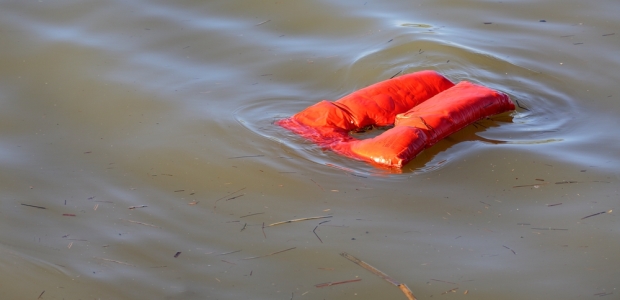
Coast Guard 7th District Offers Tips for Safe Columbus Day Weekend Boating
Boaters can download the free Coast Guard boating safety mobile app, which features the latest safety regulations and navigation rules, as well as immediate access to filling a float plan, checking the weather, and reporting pollution hazards or suspicious activity.
The Coast Guard 7th District, headquartered in Miami, is urging boaters to use extra caution while out on the water during the Columbus Day weekend. Coast Guard crews, along with local and state law enforcement agencies, will be patrolling, conducting safety checks, and watching for individuals boating while intoxicated or operating in an unsafe manner during the weekend.
It posted these safety tips to be followed before leaving the dock:
1. Never boat under the influence (BUI): It is illegal to operate a boat while under the influence of alcohol or drugs in every state. There are stringent penalties for violating BUI/BWI laws, which can include large fines, suspension, or revocation of boat operator privileges and jail terms. Alcohol use is the leading known contributing factor in fatal boating accidents.
2. File a float plan: Leave a detailed float plan with a friend or family member who is staying back. The sooner a craft can be reported overdue, the more likely a positive outcome will result. Facts need to be quickly and accurately conveyed in an emergency. Your float plan should include detailed information that rescue personnel need in order to find you. For examples of a float plan, and for more information, visit www.floatplancentral.org before you go.
3. Wear a life jacket: Life jackets save lives. In 2017, 68 percent of all fatal boating accident victims drowned. Of those, approximately 82 percent were not wearing a life jacket. Accidents can leave even a strong swimmer injured, unconscious, or exhausted in the water.
4. Take a VHF-FM marine radio: Cell phones may lose signal off shore and run out of batteries after a day on the water. They are helpful, but not reliable for emergencies. VHF-channel 16 is the marine emergency channel. It should only be used for emergencies. Boaters can reach the Coast Guard on marine-band radios at any time, day or night.
5. Monitor weather broadcasts: Watch for current storm and small craft advisories. The National Weather Service broadcasts marine weather forecasts regularly. Forecasts can be heard by tuning in to channels 1 through 5 on a VHF-FM marine radio or by checking the NWS website at www.weather.gov.
6. Have a signaling device to communicate an emergency: Boaters should have a signal flares, whistle, horn, or signal mirror, in addition to an emergency position-indicating radio beacon (EPIRB) to alert first responders to the location of a water emergency.
7. If you see something, say something: If you see someone in danger or someone you suspect may be boating under the influence, contact the Coast Guard via VHF channel 16 or to local first responders via 911.
Boaters can download the free Coast Guard boating safety mobile app, which features the latest safety regulations and navigation rules, as well as immediate access to filling a float plan, checking the weather, and reporting pollution hazards or suspicious activity, here.
The 7th District is one of nine district offices nationwide and has the responsibility for all Coast Guard operations in South Carolina, Georgia, the Florida Peninsula, and the entire Caribbean basin.